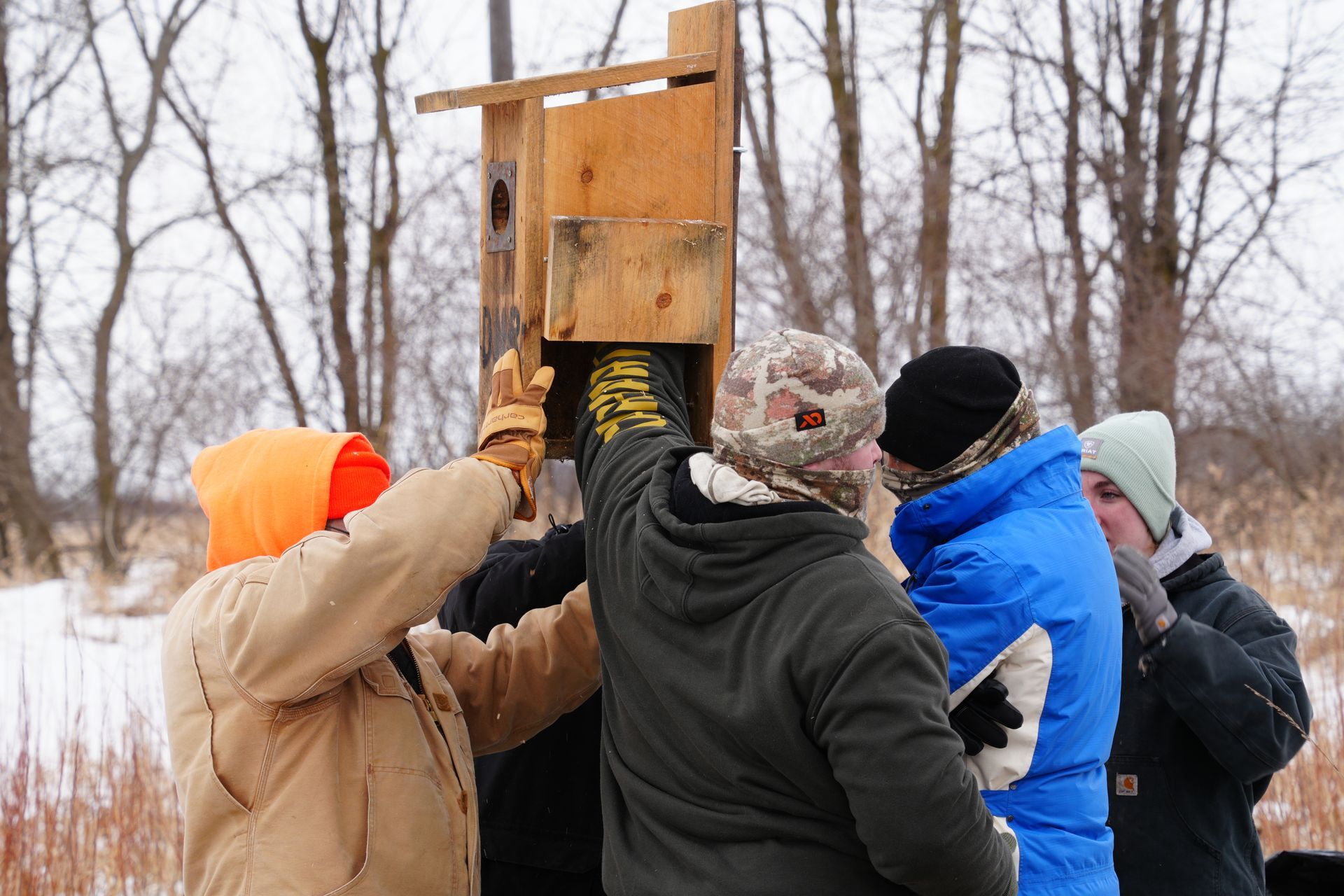On the Ground: Volunteers improve Wood Duck Nest Boxes at Maple River State Game Area
On Saturday, February 17, 2024, MUCC’s On the Ground program partnered with the Michigan Department of Natural Resources (MDNR) to maintain and install nest boxes for wood ducks at Maple River State Game Area. Wood ducks are one of the most stunning waterfowl in Michigan and are very popular among hunters and birders alike. They are cavity-nesting birds, which means they build their nests inside of a sheltered chamber such as a tree cavity. Nest boxes help increase nesting habitat for wood ducks, which were almost pushed to extinction in the late 1800s due to hunting and habitat loss. Since the first nest boxes were deployed in 1937, as many as 3 million breeding pairs of wood ducks exist across North America today.
Wood Duck Nest Box
Nest boxes for wood ducks are normally made of cedar and are attached to a 5-foot metal pole. They are placed on the water’s edge, either in the water or just on shore. Predator guards are also in place to make sure that the ducklings will be protected when they hatch. Volunteers checked each nest box by removing old nesting material and placing new nesting material inside. Nest boxes were also inspected for any signs of ducklings, as well as signs of predation.

Volunteers Benefit Wood Ducks
In total, 20 volunteers installed one new nest box and maintained many others across Maple River State Game Area. Volunteers improved 20 acres of wetland habitat for these birds.
Thank you to our partner, the MDNR for another successful event! This event is hosted annually in partnership with the MDNR and a lot of good work has been done over the years. Thank you to all of our volunteers for coming together to improve wetland habitat for Michigan’s wildlife. Without our partners and our incredible volunteers, this event would not have been possible.
The next On the Ground event will take place on Friday, February 23, 2024, at Port Huron State Game Area. To keep up with upcoming On the Ground projects, click HERE.

The post On the Ground: Volunteers improve Wood Duck Nest Boxes at Maple River State Game Area appeared first on Michigan United Conservation Clubs .
Recent Posts



